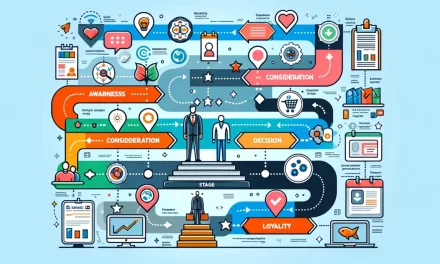Introduction
In the ever-evolving world of digital marketing, understanding the nuances of buyer psychology is not just an advantage; it’s a necessity. For coaches stepping into this dynamic field, grasping how and why consumers make purchasing decisions can be the key to unlocking unparalleled marketing success. At its core, buyer psychology delves into the cognitive and emotional processes that guide customers’ choices, shaping their interactions with brands and products. This insight is particularly crucial in crafting strategies that resonate with your audience, turning potential leads into loyal clients.
In this comprehensive guide, we’ll explore the various facets of leveraging buyer psychology in marketing. From unraveling the intricate web of consumer behavior insights to employing psychological marketing techniques, we’ll provide you with a toolkit designed to enhance your digital marketing endeavors. You’ll learn how to effectively use emotional marketing strategies and understand the consumer mindset, ensuring that your marketing efforts are not just seen but felt. Whether it’s through the subtle art of influencing consumer buying behavior or the science of neuromarketing techniques, this blog post aims to transform the way you approach marketing, making it more empathetic, effective, and engaging. Let’s embark on this journey to master the art of leveraging buyer psychology in your marketing strategies.
The Fundamentals of Buyer Psychology in Marketing
Buyer psychology in marketing is an intriguing blend of understanding human emotions and behaviors and applying this knowledge to marketing strategies. At its essence, it involves delving into why consumers behave the way they do and how this behavior influences their purchasing decisions. For coaches new to digital marketing, grasping these fundamentals is key to creating messages that resonate deeply with their target audience.
One of the core aspects of buyer psychology is the identification of psychological triggers in advertising. These triggers can range from a sense of urgency created by limited-time offers to the appeal of social proof in the form of customer testimonials or influencer endorsements. Understanding these triggers helps in crafting marketing messages that not only capture attention but also motivate action.
Another critical element is understanding the role of emotions in consumer decision-making. Emotions significantly influence how consumers perceive brands and their purchasing decisions. For instance, a marketing campaign that evokes positive emotions like happiness or excitement is more likely to be effective than one that does not. This emotional connection can be particularly powerful in the coaching industry, where trust and personal connection are paramount.
Moreover, integrating marketing psychology strategies into your digital marketing plan can substantially elevate its effectiveness. These strategies involve using insights from psychology to develop marketing campaigns that are more aligned with how the consumer’s mind works. For example, employing storytelling in your marketing can create a narrative that consumers can connect with, making your brand more memorable and relatable.
In essence, the fundamentals of buyer psychology in marketing revolve around understanding the psychological factors that influence consumer behavior and using this understanding to develop more effective marketing strategies. For coaches venturing into digital marketing, applying these principles can lead to more engaging, impactful, and successful marketing campaigns.
Unraveling the Consumer Mindset
Delving into the consumer mindset is like embarking on a journey through the intricate maze of thoughts, beliefs, and emotions that influence buying behavior. For coaches new to digital marketing, understanding this complex landscape is crucial for tailoring strategies that resonate with their audience. The consumer mindset is not just about what customers think; it’s about understanding the ‘why’ behind their decisions, which can be a game-changer in marketing.
At the heart of this exploration is the customer decision-making process. This process often begins long before the actual purchase and involves several stages, including need recognition, information search, evaluation of alternatives, purchase decision, and post-purchase behavior. By comprehending each stage, coaches can create targeted marketing efforts. For example, during the information search stage, providing educational content can position you as a trustworthy source, thereby influencing the evaluation of alternatives.
Cognitive factors also play a significant role in the consumer mindset. These include perceptions, attitudes, motivation, and beliefs. Coaches need to understand these factors to craft messages that align with their audience’s values and beliefs. For instance, if your target audience highly values personal development, highlighting how your coaching services contribute to personal growth can be a powerful motivator.
Moreover, the consumer mindset is not static; it evolves with changing trends, experiences, and social influences. Keeping abreast of these changes and adapting your marketing strategies accordingly is essential. Social media platforms can be invaluable tools in this regard, offering insights into current trends and consumer preferences.
Unraveling the consumer mindset requires a mix of empathy, research, and adaptability. For coaches, this means not only listening to what their audience says but also understanding the underlying emotions and thoughts driving those words. By gaining a deeper understanding of the consumer mindset, coaches can develop marketing strategies that are not just seen but felt, leading to deeper engagement and more effective results.
Emotional Marketing Strategies
Emotional marketing strategies are a cornerstone in the realm of buyer psychology, particularly for coaches new to digital marketing. These strategies focus on creating an emotional connection with the audience, tapping into feelings that can drive purchasing decisions. When effectively executed, emotional marketing can transform a simple message into a powerful catalyst for action.
The first step in leveraging emotional marketing is understanding the array of emotions that can be harnessed. Happiness, trust, fear, surprise, and sadness are just a few examples. For instance, a campaign that instills a sense of joy or inspiration can make your coaching services more appealing. Storytelling is a potent tool in this context. By weaving relatable, emotional narratives into your marketing, you can engage the audience on a deeper level. A story of transformation and success, for example, can inspire and motivate potential clients to seek your coaching services.
Another aspect of emotional marketing involves tapping into the concept of social proof. Humans are inherently influenced by the actions and approvals of others. Testimonials, reviews, and case studies can create a sense of trust and credibility. For a coach, showcasing success stories and endorsements from satisfied clients can significantly influence consumer buying behavior.
Leveraging buyer emotions in sales also means aligning your marketing messages with the values and aspirations of your target audience. This alignment creates a sense of belonging and community, crucial for building brand loyalty. For instance, if your coaching is centered around personal growth and empowerment, your marketing should reflect these themes, resonating with those who seek self-improvement.
Effective emotional marketing strategies require a delicate balance. It’s about striking the right chord without overdoing it. Authenticity is key; your audience should feel genuinely understood and not manipulated. By mastering the art of emotional marketing, coaches can create compelling campaigns that not only capture attention but also foster a lasting connection with their audience.
Analyzing Consumer Behavior Insights
Analyzing consumer behavior insights is a critical step for coaches diving into digital marketing. This analysis involves understanding the patterns, habits, and preferences of your target audience, and using this information to make informed marketing decisions. By gaining a deeper insight into consumer behavior, you can tailor your marketing strategies to be more effective and impactful.
Data is at the heart of consumer behavior analysis. Various tools and methods can be used to gather data, such as surveys, social media analytics, website traffic analysis, and customer feedback. These tools provide valuable information about your audience, like their demographics, interests, online behavior, and engagement patterns. For example, website analytics can reveal which pages your visitors spend the most time on, indicating their interests and potential pain points that your coaching services can address.
Segmentation is another important aspect of analyzing consumer behavior. By segmenting your audience based on criteria like age, location, or interests, you can create more targeted and personalized marketing campaigns. Personalization is key in today’s marketing landscape, as it helps in building a stronger connection with your audience. For instance, a coach specializing in career development might target young professionals with content tailored to early career challenges.
Consumer psychology analysis also involves understanding the emotional and psychological factors that influence buying decisions. This understanding can help you craft messages that resonate on a deeper level with your audience. For instance, if you know that your target audience values self-improvement highly, you can create content that emphasizes the transformative impact of your coaching.
Lastly, it’s important to keep an eye on trends and changes in consumer behavior. The digital landscape is constantly evolving, and so are the preferences and behaviors of consumers. Staying updated with these changes and adapting your marketing strategies accordingly can give you a competitive edge.
In summary, analyzing consumer behavior insights allows coaches to develop more effective and targeted marketing strategies. By understanding who your audience is, what they want, and how they behave, you can create marketing campaigns that are not just seen, but deeply felt and acted upon.
Psychological Marketing Tactics for Coaches
For coaches venturing into the digital marketing space, employing psychological marketing tactics can be a game-changer. These tactics are designed to tap into the subconscious desires and needs of potential clients, creating a more compelling and persuasive message. Understanding and implementing these tactics can greatly enhance the effectiveness of your marketing campaigns.
Firstly, the principle of scarcity can be incredibly powerful. This involves creating a sense of urgency and exclusivity around your coaching services. For example, offering a limited-time discount on your coaching sessions or highlighting the exclusive nature of your programs can prompt potential clients to take action more quickly. This tactic plays on the natural human tendency to desire what seems less available or limited in quantity.
Another effective psychological tactic is the use of social proof. As humans, we are influenced by the actions and opinions of others. Incorporating client testimonials, success stories, and endorsements into your marketing materials can build trust and credibility. For instance, showcasing how your coaching has positively impacted others can persuade new clients to embark on a similar journey with you.
The principle of reciprocity is also crucial in psychological marketing. This involves giving something of value to potential clients, which can create a sense of obligation and encourage them to give something back, like engaging your services. This could be in the form of free resources, like ebooks, webinars, or insightful blog posts on personal development and coaching.
Utilizing the power of storytelling is another potent psychological marketing tactic. Narratives that resonate with your audience’s experiences and aspirations can create a strong emotional connection. By sharing stories of challenges and triumphs, you can inspire and motivate potential clients, making your coaching services more appealing.
In conclusion, psychological marketing tactics offer a robust toolkit for coaches to connect with their audience on a deeper level. By understanding and leveraging these principles, you can create more persuasive and impactful marketing campaigns that not only capture attention but also convert prospects into loyal clients.
The Role of Neuromarketing
Neuromarketing, a relatively new field at the intersection of neuroscience and marketing, offers profound insights for coaches looking to enhance their digital marketing strategies. This innovative approach involves studying how the brain responds to marketing stimuli, providing a deeper understanding of consumer reactions and decision-making processes.
At the core of neuromarketing is the idea that consumer decisions are not just rational but are significantly influenced by unconscious processes. For instance, neuromarketing studies have revealed that certain colors, images, and sensory experiences can trigger emotional responses and memory recall, factors which heavily influence buying behavior. Coaches can apply these insights by carefully choosing visuals and narratives in their digital content that are more likely to engage and resonate with their audience on a subconscious level.
Another aspect of neuromarketing is the measurement of physiological responses, such as eye movement, heart rate, and brain activity, to marketing materials. This data provides invaluable feedback on what captures attention, generates interest, and triggers emotional engagement. For example, a coach could use this information to optimize website design, ensuring that key messages and calls to action are placed in areas most likely to draw and retain viewer attention.
Incorporating neuromarketing techniques into digital marketing efforts can greatly enhance the effectiveness of a coach’s outreach. By understanding the subtle, often unconscious influences on consumer behavior, coaches can create more intuitive, engaging, and ultimately successful marketing campaigns that resonate deeply with their target audience.
Building Long-Term Customer Relationships
The ultimate goal of understanding and leveraging buyer psychology in marketing is to build long-term customer relationships. This requires a focus beyond the initial sale, emphasizing continuous engagement and trust-building. For coaches, this means consistently providing value, whether through insightful content, ongoing support, or community building activities. Implementing psychological pricing strategies, like offering package deals or loyalty discounts, can also foster a sense of value and appreciation among clients. Cultivating these relationships leads to repeat business and referrals, turning satisfied clients into advocates for your coaching services, thereby establishing a sustainable and growing business model.











